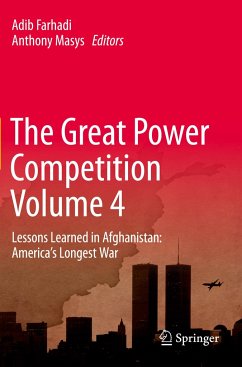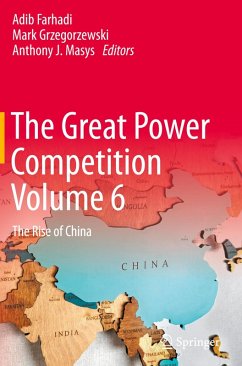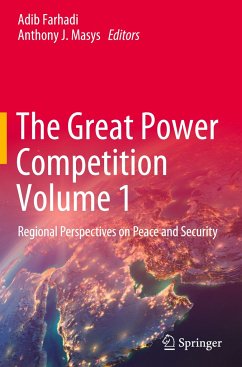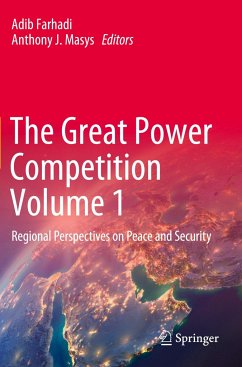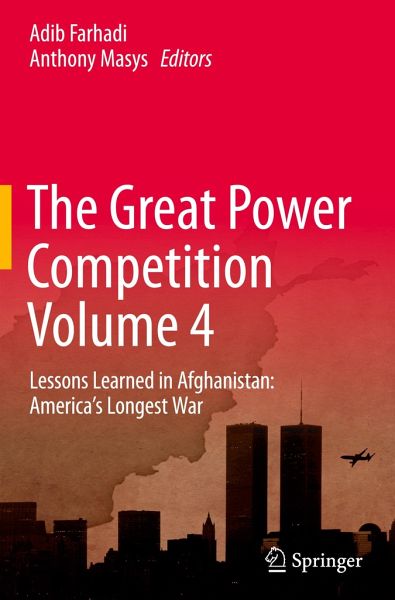
The Great Power Competition Volume 4
Lessons Learned in Afghanistan: America's Longest War
Herausgegeben: Farhadi, Adib; Masys, Anthony

PAYBACK Punkte
53 °P sammeln!
Lessons Learned from Afghanistan: America's Longest War examines the lessons of how America's "longest war" came to an ignominious end with staggering consequences for the United States and the Afghan nation. Afghanistan today faces an unprecedented humanitarian crisis, looming threat of a civil war and a resurgence of violent extremism organizations similar to pre-9/11. As the U.S. enters a new era in the strategic geopolitical Great Power Competition, an analysis of the original mission intent, shifting policy and strategic objectives, and ineffective implementation of security, political an...
Lessons Learned from Afghanistan: America's Longest War examines the lessons of how America's "longest war" came to an ignominious end with staggering consequences for the United States and the Afghan nation. Afghanistan today faces an unprecedented humanitarian crisis, looming threat of a civil war and a resurgence of violent extremism organizations similar to pre-9/11. As the U.S. enters a new era in the strategic geopolitical Great Power Competition, an analysis of the original mission intent, shifting policy and strategic objectives, and ineffective implementation of security, political and economic programs reveal critical lessons and questions such as: What led to the "strategic failure" of the U.S. in Afghanistan? What decisions resulted in the present-day humanitarian, civil, and political crises in Afghanistan? Were these consequences in fact avoidable? Was there an alternative approach that could have maintained the hard-fought gains of the last two decades, and better demonstrated America's standing as a defender of global human rights?
Lessons Learned from Afghanistan: America's Longest War further explores lessons of the past negotiations between the United States, Taliban, and former U.S. backed Afghan government to suggest alternative pathways that honor the original intent of the mission and meet present-day obligations to an Afghan nation in crisis.
Lessons Learned from Afghanistan: America's Longest War further explores lessons of the past negotiations between the United States, Taliban, and former U.S. backed Afghan government to suggest alternative pathways that honor the original intent of the mission and meet present-day obligations to an Afghan nation in crisis.





